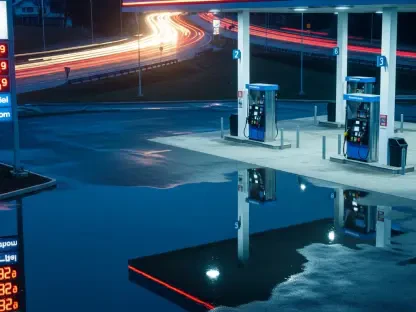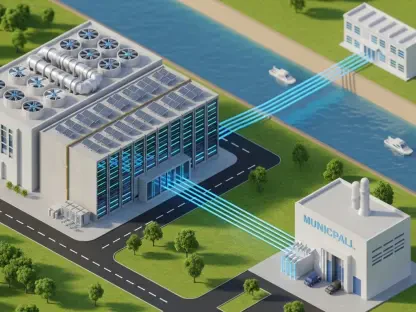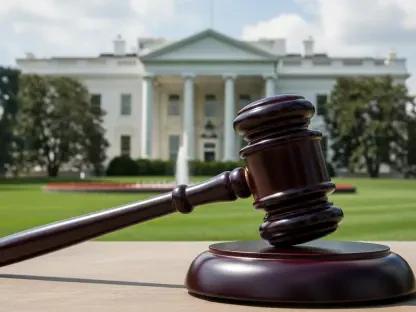In the heart of the Balkans, Montenegro faces a stark challenge: preserving its breathtaking landscapes while battling rampant pollution and eco-crime. On World Environment Day, a powerful response emerged with the launch of Čuvaj da te čuva (“Protect So It Protects You”), a national environmental campaign backed by the European Union. This ambitious initiative seeks to realign Montenegro with its historic title as the world’s first ecological state, a designation made decades ago but often overshadowed by inaction. With the urgent need to combat environmental degradation and meet EU standards, the campaign unites government, civil society, businesses, and citizens in a collective push for sustainability, marking a pivotal moment for the nation’s future.
A Unified Drive for Environmental Change
The launch of this groundbreaking campaign unfolded as a significant event, drawing attention to Montenegro’s pressing ecological crisis. Held on World Environment Day, it served as a platform for key stakeholders to voice their commitment to transformative action. EU Ambassador Johann Sattler and Prime Minister Milojko Spajić led the charge, joined by a diverse coalition spanning academia, media, local leaders, and private sector representatives, all converging to address the gap between Montenegro’s ecological aspirations and its current reality.
This gathering underscored the critical importance of aligning national policies with environmental goals, especially as Montenegro eyes EU integration. The event’s timing and focus highlighted a shared resolve to tackle pollution through stricter laws and public involvement. It painted a picture of a nation ready to reclaim its green legacy, emphasizing that such reform is not just a policy issue but a cultural imperative for future generations.
The discussions and initiatives unveiled during the launch set a compelling tone for actionable progress. From high-level commitments to grassroots engagement, the event laid the groundwork for a multi-faceted approach to sustainability. This momentum naturally leads into the detailed highlights of what transpired, showcasing the depth of dedication and innovation on display.
Memorable Moments from the Campaign Kickoff
The launch event brimmed with impactful moments that captured the essence of Montenegro’s environmental ambitions. A palpable sense of unity permeated the atmosphere as speakers and participants alike stressed the urgency of collective action. Themes of regulatory reform, public accountability, and sustainable innovation dominated the day, conveyed through a blend of stirring speeches, thought-provoking panels, and hands-on activities designed to inspire change.
Beyond rhetoric, the event offered a glimpse into practical steps forward, reflecting a holistic strategy to address environmental woes. Each segment, from keynote addresses to interactive sessions, reinforced the idea that protecting nature requires both systemic shifts and individual responsibility. These highlights collectively painted a roadmap for turning vision into reality across the nation.
Powerful Takeaways from Keynote Addresses
Ambassador Sattler delivered a resonant message, asserting that environmental challenges can be met through “goodwill, stricter penalties, and partnership.” His call for a united front emphasized the need for tough, sometimes unpopular decisions to curb eco-crime. This perspective set a serious tone, urging all sectors to prioritize nature over short-term gains.
Prime Minister Spajić complemented this by reflecting on past neglect, admitting that Montenegro has not fully honored its ecological state title. He pledged tangible actions, such as clearing illegal landfills and enforcing penalties to deter future violations. His speech underscored a shift toward accountability, with promises of monitoring systems to ensure lasting impact.
Additional expert voices reinforced these commitments, focusing on policy alignment with Montenegro’s green identity. Announcements of upcoming initiatives, like enhanced waste management programs, signaled a proactive stance. These messages collectively framed the campaign as a serious endeavor rooted in both urgency and hope.
Key Themes from Panel Collaborations
Panel discussions brought together ministers, local leaders, and civil society figures to explore the intricacies of environmental reform. A recurring theme was the necessity of interinstitutional cooperation, with Sattler’s concept of a “Coalition of Willing” gaining traction as a model for inclusive action. This idea highlighted how diverse entities can amplify impact through shared goals.
Local perspectives added depth, with Podgorica Mayor Saša Mujović advocating for stronger synergy between national directives and municipal efforts. He pointed to challenges like insufficient inspection resources, stressing the need for better surveillance to prevent environmental offenses. These insights revealed the practical hurdles that must be addressed at every level.
Debates also touched on systemic barriers, with panelists emphasizing enforcement and public accountability as critical tools. The consensus was clear: without robust mechanisms to uphold regulations, progress risks stalling. Such discussions illuminated the complex interplay of governance and community action required for success.
Interactive Learning through Workshops
The event’s workshops offered a dynamic space for education and engagement, drawing attendees into the campaign’s mission. Inspired by frameworks like the Strategy for Education 2035, as noted by Minister Anđela Jakšić Stojanović, these sessions aimed to integrate environmental awareness into everyday learning. They provided practical tools for citizens to adopt sustainable habits.
Participants explored topics ranging from waste reduction to eco-friendly behaviors, fostering a sense of ownership over local environmental issues. These interactive elements bridged the gap between policy and practice, showing how individual actions contribute to broader goals. Hands-on activities made abstract concepts tangible, sparking enthusiasm among attendees.
A key focus was addressing public awareness gaps, with facilitators emphasizing the role of informed communities in driving change. By modeling protective behaviors, the workshops encouraged a cultural shift toward responsibility. This direct involvement proved essential in making the campaign’s message resonate on a personal level.
Cutting-Edge Solutions on Display
Practical innovations took center stage with demonstrations of forward-thinking environmental solutions. Prime Minister Spajić and Podgorica Landfills’ Aleksandar Božović showcased a waste tire processing machine designed to convert discarded materials into exportable resources. This initiative highlighted a creative approach to tackling waste challenges.
Efforts to curb plastic bag usage through regulatory adjustments were also spotlighted, reflecting a commitment to reducing everyday pollution. These measures addressed immediate concerns while setting a precedent for scalable impact. Their presentation underscored the potential for technology and policy to intersect effectively.
Such innovations not only offered solutions but also inspired broader adoption across Montenegro. By focusing on actionable projects, the event demonstrated that sustainability is achievable through ingenuity and determination. These displays served as a catalyst for further exploration of eco-friendly practices in various sectors.
Building a Greener Tomorrow for Montenegro
Montenegro’s environmental campaign launch stands as a defining moment, uniting diverse stakeholders under the banner of Čuvaj da te čuva. The event’s outcomes reflect a resolute aim to transform the nation into a genuine ecological state by 2028, blending regulation, education, and innovation. This multi-pronged strategy addresses both immediate crises and long-term aspirations tied to national identity and EU membership goals.
The broader implications of this initiative ripple beyond borders, contributing to global sustainability efforts. It positions Montenegro as a potential leader in balancing natural heritage with modern demands. The campaign emerges as a national movement, knitting together varied voices in a shared mission to safeguard the environment for future generations.
Looking back, the launch event proved to be a catalyst for change, igniting discussions that challenged past inaction. It laid a foundation for continued collaboration among government bodies, local communities, and international partners. Moving forward, the focus must shift to sustaining this momentum through consistent enforcement of new policies and expanding public education initiatives.
To build on this success, stakeholders should prioritize transparent monitoring of environmental progress and invest in scalable solutions like waste-to-resource technologies. Encouraging citizen involvement through accessible platforms will further strengthen the campaign’s reach. As Montenegro navigates this journey, the collective will displayed at the launch must translate into enduring action, ensuring that the promise of an ecological state becomes a lived reality.









